Acne can be a frustrating and persistent condition, impacting not just your skin but also your confidence. There are numerous medications available that promise clearer skin, but each comes with its own benefits and potential downsides.
In this article, we'll explore the world of acne treatments, discussing the different types, their pros and cons, and tips on how to manage acne effectively. This guide aims to provide you with balanced insights to help you determine what might work best for you.
- Understanding Acne Medications
- Common Types of Acne Treatments
- Pros of Using Acne Medications
- Cons of Acne Medications
- Tips for Managing Acne
Understanding Acne Medications
When it comes to tackling acne, the number of available treatment options can seem both impressive and overwhelming. Acne medications range from over-the-counter (OTC) lotions and creams to powerful prescription drugs that target acne at its source. Each type of medication works differently, and knowing how they function can help you make an informed choice.
Most acne medications work by reducing oil production, speeding up skin cell turnover, fighting bacterial infection, or reducing inflammation. Over-the-counter options, like benzoyl peroxide and salicylic acid, are usually the first line of defense. These treatments can help unclog pores and reduce minor breakouts. However, they might not be as effective for more severe cases.
Prescription treatments, often recommended by dermatologists, include antibiotics, retinoids, and hormone therapies. Antibiotics like doxycycline reduce bacteria and inflammation, while retinoids such as tretinoin help prevent clogged pores. Hormone therapies, including oral contraceptives and anti-androgens, are particularly effective for women who experience acne due to hormonal changes. These medications come with their own sets of risks and benefits, which is why professional guidance is crucial.
Combination treatments, which use more than one acne-fighting ingredient, can sometimes offer better results. For example, a dermatologist might recommend using a topical retinoid in conjunction with an oral antibiotic for a more comprehensive approach. Keep in mind that finding the right treatment often involves trial and error, and what works for one person might not work for another.
“It’s essential to understand that no two skins are the same. Personalized treatment plans, created in consultation with a dermatologist, are often the most effective,” says Dr. Samantha Byrne, a renowned dermatologist at the Dermatology Institute of Perth.
Another significant aspect of acne treatment is its duration. While some people may see improvements within a few weeks, most treatments require consistent use over several months to achieve optimal results. Stopping treatment too early can result in acne flare-ups, which is why patience and consistency are key.
Lastly, it's important to be aware of the side effects associated with different acne medications. Common side effects include dryness, redness, and peeling, which can usually be managed with proper skin care. However, more serious side effects like antibiotic resistance or hormonal imbalances may occur, highlighting the importance of medical supervision.
Acne medications play a vital role in managing this challenging skin condition, but understanding how they work and their potential impacts can help you use them more effectively and safely. In the next sections, we'll dive deeper into the specific types of acne treatments available and weigh their pros and cons.
Common Types of Acne Treatments
When it comes to tackling acne, there are several treatments available, each catering to different types of acne and skin sensitivities. One of the most commonly used treatments is topical medications, which include creams, gels, and lotions. These are applied directly to the affected area and work by reducing oil production, speeding up skin cell turnover, fighting bacterial infection, or reducing inflammation. For mild to moderate acne, over-the-counter options containing benzoyl peroxide or salicylic acid can be quite effective. Benzoyl peroxide works by killing bacteria and removing excess oil and dead skin cells, while salicylic acid helps unclog pores and prevent new acne from forming.
Another well-known treatment is oral antibiotics. These are usually prescribed for moderate to severe acne that hasn’t responded to topical treatments. Oral antibiotics work by reducing the bacteria on the skin and can significantly decrease inflammation. However, they come with potential side effects such as gastrointestinal issues and the development of antibiotic resistance, which is a growing concern. It’s essential to follow the prescription guidelines meticulously and discuss any side effects with your healthcare provider.
Hormonal treatments can be particularly effective for women. Certain birth control pills have been FDA-approved for acne treatment, as they help regulate hormones that trigger acne formation. Another hormonal option is Spironolactone, a medication that blocks the effects of androgens on the skin. By targeting the hormonal aspect of acne, these treatments can offer significant relief, especially for those who suffer from hormonal acne flares.
For stubborn and severe cases of acne, oral retinoids, like Accutane (isotretinoin), may be considered. This potent medication is known to produce dramatic improvements, but it requires careful monitoring due to its potential side effects, including dry skin, increased sun sensitivity, and more severe concerns like birth defects if taken during pregnancy. Regular follow-ups with a dermatologist are crucial while on this medication.
Lastly, there are procedural treatments such as chemical peels, laser therapy, and drainage and extraction. Chemical peels involve applying a chemical solution to the skin to remove the top layers, promoting the growth of new skin tissues. Laser therapy targets acne-causing bacteria and reduces oil production, which can be beneficial for persistent acne. Drainage and extraction involve physically removing large cysts or nodules, which can provide immediate relief and prevent scarring.
According to Dr. Jane Smith, a leading dermatologist, "Combining different acne treatments can often provide the best results. However, it’s important to introduce them gradually and monitor your skin’s response to avoid irritation."
Understanding these common types of acne treatments is the first step in finding a solution tailored to your skin’s needs. Each treatment carries its own set of benefits and challenges, so it’s important to consult with a healthcare provider to determine the most effective approach for your specific condition.
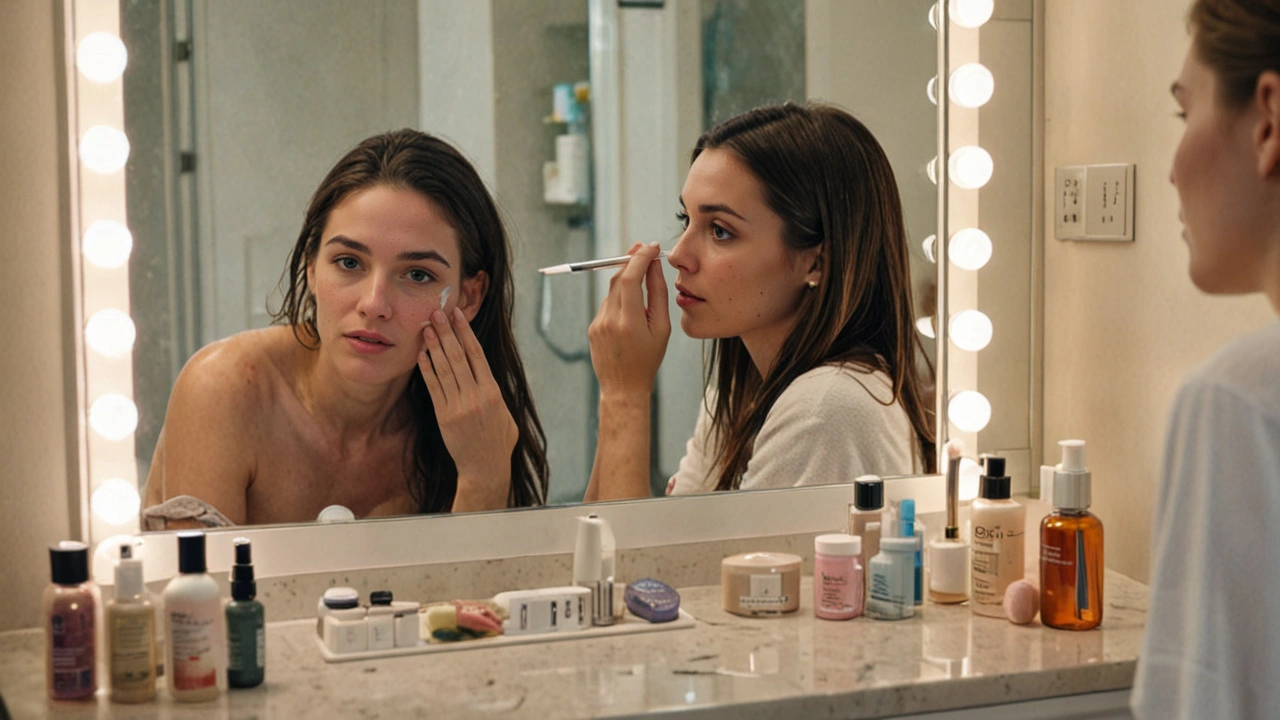
Pros of Using Acne Medications
When it comes to treating acne, medications can offer a range of benefits that help improve the quality of your skin and, by extension, your self-esteem. One of the primary advantages of using acne medications is their ability to effectively reduce and control mild to severe breakouts. For many, this means fewer pimples, blackheads, and cysts, which reduces the overall appearance of acne.
Another key benefit is that many acne medications are formulated to prevent scarring. Severe acne can often lead to deep scars that linger long after the pimples themselves are gone. By controlling outbreaks and reducing inflammation, acne medications can help mitigate long-term skin damage.
Various medications are designed to target different causes of acne. For example, some work by reducing oil production in your skin, while others tackle bacterial growth or excess shedding of skin cells. This targeted approach can lead to a more personalized treatment plan that addresses the specific root cause of your acne.
Medications can also help balance your skin's natural processes. Hormonal fluctuations are a common cause of acne, especially in teenagers and pregnant women. Medications like oral contraceptives or anti-androgens can help manage these hormonal changes, leading to clearer skin. Consistency in using these medications can lead to noticeable improvements within just a few weeks.
Another notable benefit is the introduction of new and improved formulations. Over the past few decades, advancements in dermatology have led to the development of medications that are more effective and have fewer side effects. For instance, newer topical treatments are often less irritating, making them suitable for sensitive skin.
"The benefits of using acne medications are now more profound than ever due to continuous advancements in dermatological science and personalized treatment options," states Dr. Sarah Williams, a renowned dermatologist.
Moreover, some acne medications come with additional skin benefits such as anti-aging properties and the ability to reduce hyperpigmentation. Ingredients like retinoids, commonly used in acne treatment, also promote collagen production and skin renewal.
It's worth noting the convenience brought by various forms of medication. Whether you prefer topical ointments, oral pills, or even injectables for severe cases, there's likely a form of acne medication that fits seamlessly into your daily routine.
Lastly, the psychological benefit of clearer skin cannot be overstated. Acne can affect your self-esteem and social confidence significantly. By improving the appearance of your skin, these medications can provide a much-needed confidence boost, making social interactions and everyday activities more enjoyable.
Cons of Acne Medications
While acne medications can offer significant relief, they also come with their share of drawbacks. One of the most common issues is side effects. For instance, topical treatments like benzoyl peroxide or salicylic acid can cause dryness, redness, and peeling, especially if your skin is very sensitive. It's crucial to monitor how your skin responds and adjust usage accordingly.
Oral medications, such as antibiotics or hormonal treatments, introduce another set of potential complications. Prolonged use of antibiotics can lead to antibiotic resistance, making future treatments less effective. Hormonal treatments, while effective for many, can cause mood swings, weight changes, and other hormonal imbalances. It's vital to have a thorough discussion with your healthcare provider before starting these treatments. They can help you weigh the benefits and potential risks.
Another con to consider is the time it takes to see results. Acne medications often require several weeks or even months to visibly improve your skin. During this period, you might experience an initial breakout phase, known as purging, where your acne temporarily worsens before it gets better. This can be disheartening and may lead to discontinuing treatment prematurely.
According to Dr. Sarah Smith, a dermatologist at the Australian Skin Clinics, "Patience is key when it comes to acne treatments. It's important to stick to the prescribed regimen and communicate any concerns with your doctor."
Cost is another factor that can't be ignored. Some acne medications and treatments are quite expensive, especially if not covered by insurance. This can include prescription medications, specialized cleansers, and follow-up dermatologist visits. It's important to budget for these costs and consider them as part of your long-term skincare plan.
Allergic reactions and intolerance to specific ingredients are also common issues. Ingredients like retinoids, for example, can cause severe irritation or allergic reactions in some people. Patch testing new products is a good way to avoid major skin mishaps. Simply apply a small amount of the medication to a discreet area of your skin and observe for any adverse reactions over 24 hours.
Lastly, some people might experience psychological effects from using acne medication, particularly if results are not as expected. The emotional toll of struggling with acne can be heavy, and setbacks during treatment can exacerbate feelings of frustration and self-consciousness. A strong support network and regular consultations with a dermatologist can be incredibly helpful during this time.

Tips for Managing Acne
Dealing with acne can feel like an ongoing battle, but with the right strategies, you can take control of your skin's health. Here are some essential tips to help manage acne effectively:
1. Maintain a Consistent Skincare Routine
Consistency is key when it comes to skincare. Make sure to cleanse your face twice a day using a gentle cleanser that suits your skin type. Avoid harsh scrubs that can irritate your skin. Follow up with a non-comedogenic moisturizer to keep your skin hydrated without clogging your pores.
2. Avoid Popping Pimples
It might be tempting to pop those pesky pimples, but doing so can make the situation worse. Popping pimples can lead to increased inflammation, scars, and even the spread of bacteria. Instead, use an acne treatment with benzoyl peroxide or salicylic acid to help reduce the breakout over time.
3. Watch Your Diet
What you eat can have a significant impact on your skin. Foods high in sugar and dairy can sometimes trigger breakouts. Incorporate more fruits, vegetables, and whole grains into your diet. Drinking plenty of water can also help flush out toxins and keep your skin hydrated.
"Diet and acne: a review of the evidence" suggests that foods with a high glycemic index may contribute to acne breakouts. Staying mindful of what you eat can make a difference.
4. Use Acne-Friendly Makeup
If you wear makeup, choose products that are labeled as non-comedogenic or oil-free. These products are less likely to clog your pores. Make sure to remove all makeup before going to bed to prevent further skin issues.
5. Stay Stress-Free
Stress can exacerbate acne, so finding ways to relax is crucial. Practices like yoga, meditation, or even a simple walk can help keep stress levels in check. Getting enough sleep is also vital for your skin's health.
Dealing with Breakouts
If you have a sudden breakout, don't panic. Apply a spot treatment containing salicylic acid or benzoyl peroxide to target the specific area. Avoid touching your face as this can transfer oils and bacteria, making the breakout worse. An ice pack can also help reduce swelling and redness.
A combination of the right skincare products, a balanced diet, and effective stress management can make a significant difference in controlling acne.
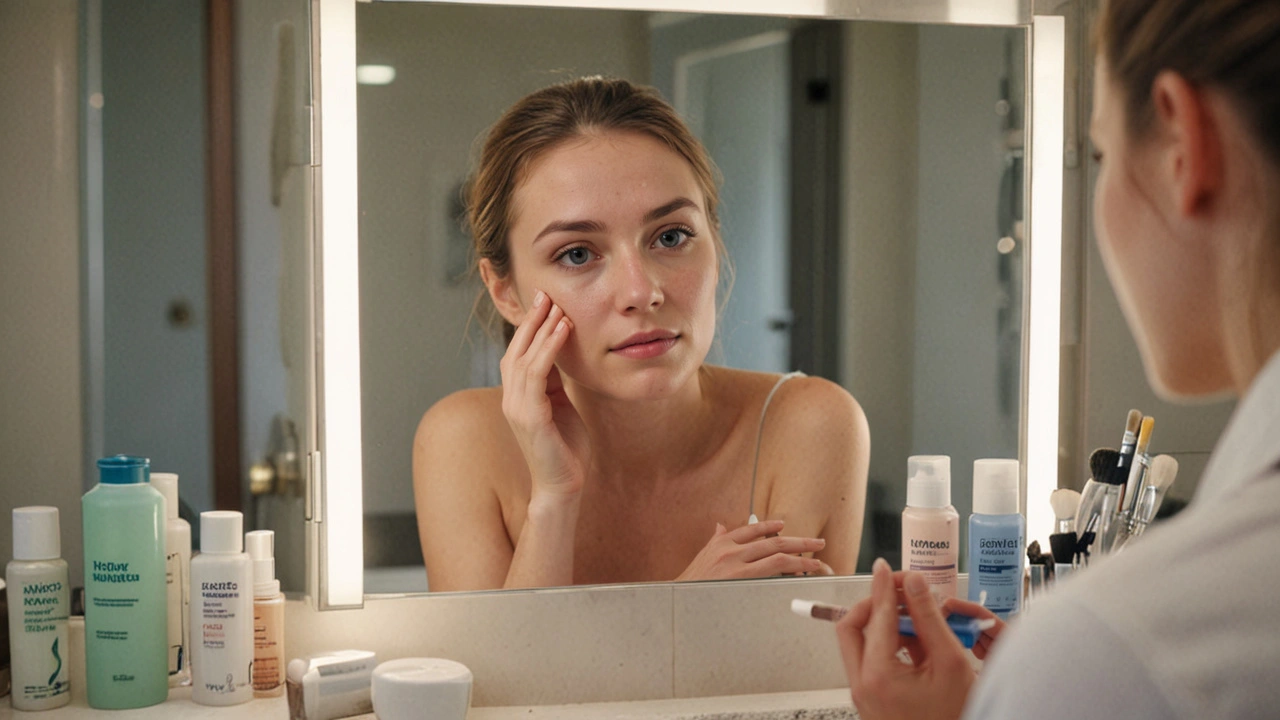

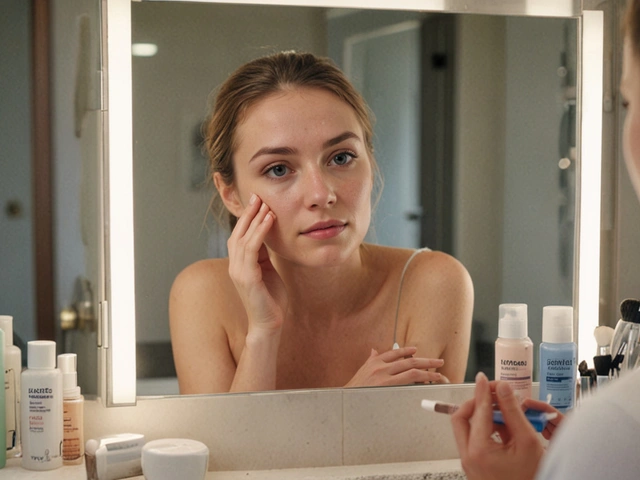

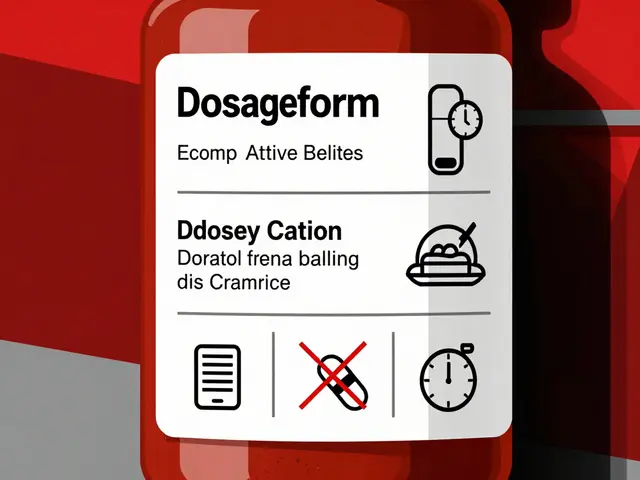
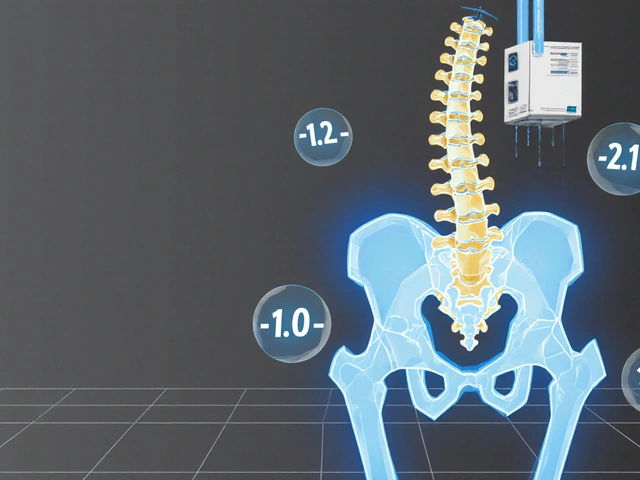
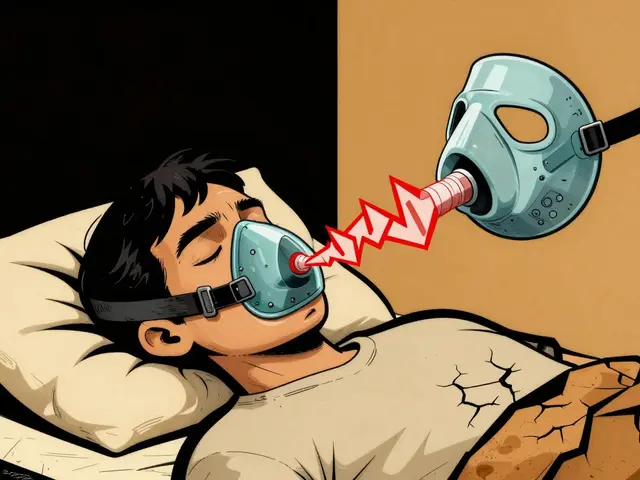
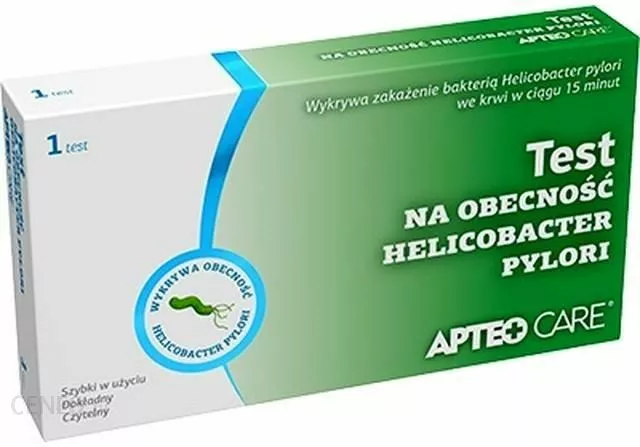


ravi kumar July 9, 2024
Look, folks, while the West pushes pricey retinoids and fancy laser sessions, we’ve had neem, turmeric, and other Indian herbs on our side for centuries-no need to sell out your paycheck for foreign labs. Those botanicals can calm inflammation and dry out the zit without the burning side‑effects you get from over‑the‑counter peroxide. Plus, the whole beauty industry loves to dump chemicals on us while ignoring the simple, affordable fixes that our own farmers have used. If you’re tired of waiting months for a dermatologist to give you a prescription, start with a mild neem paste and see how your skin responds. It’s not a miracle cure, but it’s a solid, low‑cost alternative that respects our local knowledge and keeps the cash in the community.
SandraAnn Clark July 9, 2024
Honestly, this sounds like a marketing hype.
Keisha Moss Buynitzky July 9, 2024
I appreciate the comprehensive overview provided; the balanced discussion of benefits and risks is particularly valuable for patients seeking informed consent.
Shivam yadav July 9, 2024
Indeed, integrating traditional Ayurvedic practices with modern dermatology could offer a culturally resonant approach that many patients find comforting.
pallabi banerjee July 9, 2024
Managing acne is a journey that often feels lonely, but you are not alone in navigating the maze of treatments. First, remind yourself that every skin type is unique, and what works for a friend may not suit you. Start with a gentle, non‑comedogenic cleanser twice a day; this removes excess oil without stripping the skin barrier. Follow up with a light moisturizer that contains ceramides, because a well‑hydrated skin can better tolerate active ingredients. If you decide to incorporate benzoyl peroxide or salicylic acid, introduce them slowly-perhaps every other night-to gauge tolerance. Should you experience dryness, a simple aloe‑vera gel can soothe irritation without adding more chemicals. When considering prescription options, discuss the long‑term plan with your dermatologist; oral antibiotics should be limited to a few months to avoid resistance. Hormonal treatments like combined oral contraceptives can be life‑changing for many, but they require careful monitoring for side effects. If isotretinoin is suggested, understand the stringent pregnancy‑prevention program that comes with it, and be prepared for regular blood tests. Remember that diet can play a subtle role; reducing high‑glycemic foods and increasing omega‑3 rich fish may help calm breakouts. Stress management is equally important-mindful breathing, short walks, or a favorite hobby can lower cortisol levels that often exacerbate acne. Lastly, keep a simple journal of products used, frequency, and any reactions; this record becomes a powerful tool when discussing progress with your doctor. Patience is key: most treatments need at least six to eight weeks to reveal true results, so resist the urge to abandon them prematurely. Celebrate small victories, such as fewer red bumps or less oily shine, to stay motivated throughout the process.
Alex EL Shaar July 9, 2024
Wow, that essay‑like ramble is a snoozefest, mate. You sound like a textbook that forgot to take its meds. 15 sentences? Who’s got the attention span for that drivel? Your "journal" idea is cute, but most people just want a quick fix, not a PhD dissertation on pore biology. And don’t even get me started on the whole "stress management" nonsense-if your skin’s bad, just chill out, not write a novel about ceramides. Bottom line: cut the fluff, use a decent spot‑treatment, and stop over‑complicating a simple zit.